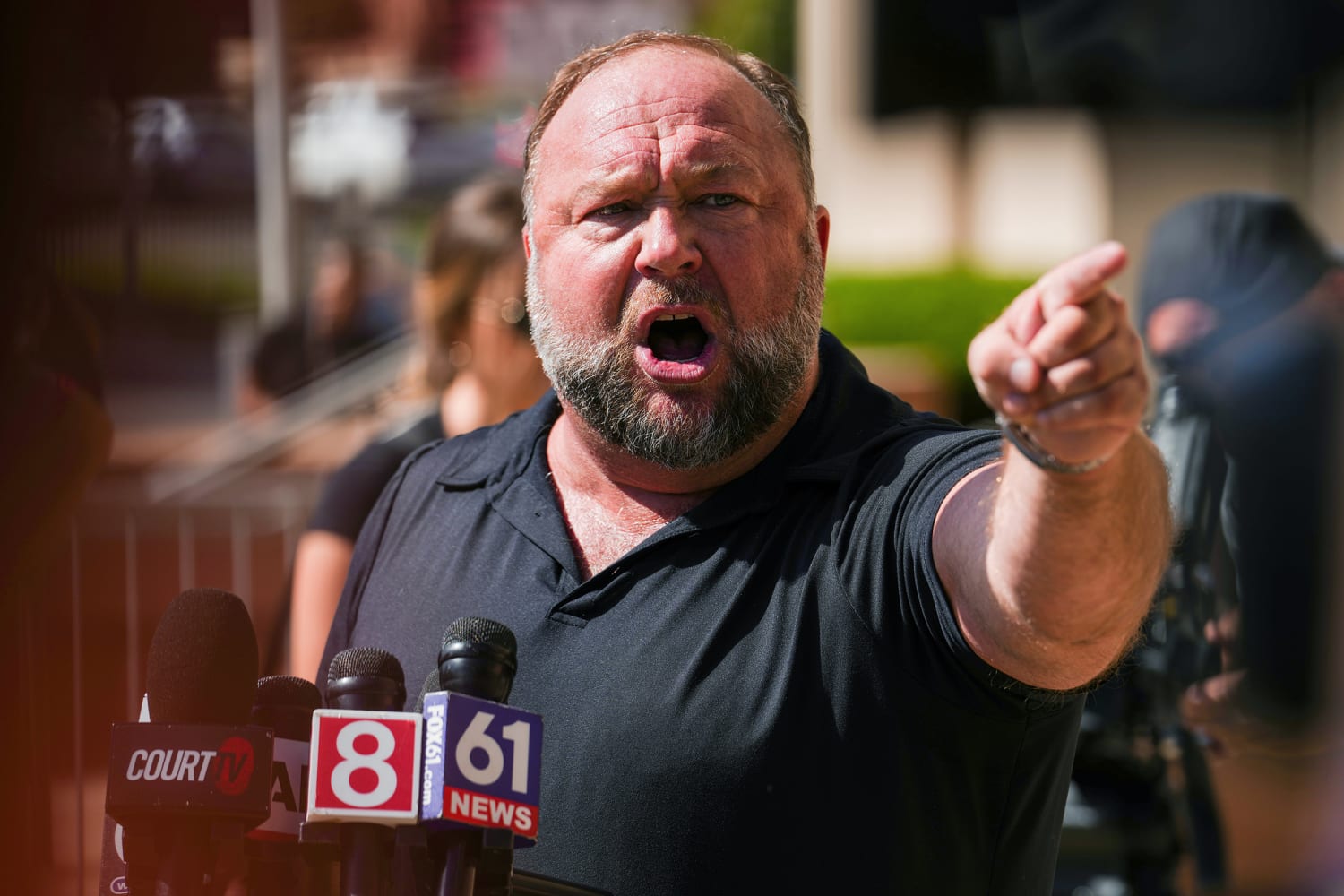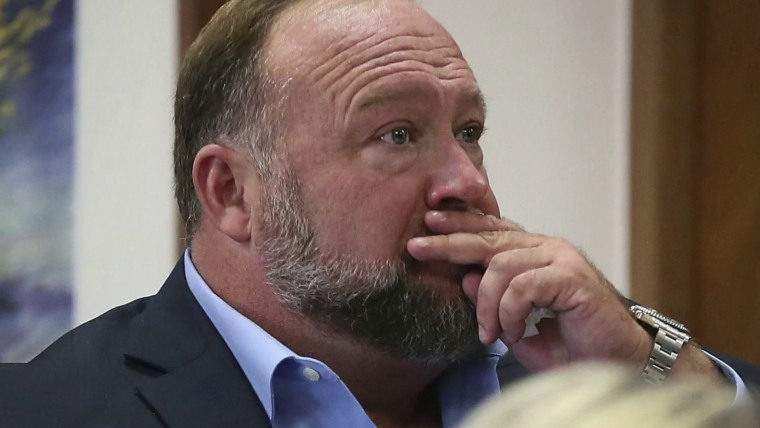A Connecticut jury on Wednesday ordered conspiracy theorist Alex Jones to pay nearly $1 billion for defaming the families of the 2012 Sandy Hook school shooting victims. Given Jones’ wealth, which was estimated at $135 million to $270 million if you include his media company, this verdict would seem bound to put Jones out of business. (To be clear, that damages number, which includes penalties imposed in a previous trial in Texas, will also likely change; Jones has one more trial left, and state sentencing caps and other considerations could ultimately limit the financial payout.) No matter how many millions Jones will ultimately have to pay, many are finding solace and relief in the fact that he has to pay at all.
This is natural, and fair. But we must keep in mind that Jones is just one of many conspiracy theorists and provocateurs who spread hate and falsehoods. And even he is not going down without a fight.
As soon as the verdict was announced, Jones called the lawsuit a political weapon for the Democrats. Holding his head high, he called on his followers to donate money and vowed to keep speaking his truth while claiming he would not have to actually pay out the damages. Clearly, defamation lawsuits alone cannot break the lie machines created by men like Jones, which have inflicted tremendous pain on private individuals, eroded citizens’ confidence in democratic institutions and radicalized segments of our society to engage in violence.
For one thing, defamation lawsuits do not cover every kind of misinformation that pundits such as Dan Bongino, politicians such as Donald Trump and media outlets such as OANN are feeding their audiences. They do not even cover the lies, like chemicals in the water have turned frogs gay or that Robert Mueller is a pedophile, both of which Jones has promoted on his programs.
That’s because to constitute defamation, a published statement must be demonstrably false, must have a negative impact on the reputation of a person and must be made with intent and malice — if it is about public figures. Many widespread conspiracy theories and falsehoods do not qualify as defamation because they do not have identifiable people (e.g., the conspiracy theories claiming that the Sept. 11 terrorist attacks were an inside job), because they target public officials who may not be able to prove actual malice or reputational harm (e.g., the Pizzagate conspiracy theory claiming Hillary Clinton was involved in child sex trafficking) or because they cannot easily be proven to be demonstrably false.
Misinformation purveyors often use a variety of rhetorical techniques to create misleading impressions without making demonstrably false statements.
Indeed, misinformation purveyors often use a variety of rhetorical techniques to create misleading impressions without making demonstrably false statements. These rhetorical strategies include half-truths, by using partial truths to tell a big lie; decontextualization, by removing the context of information; humor, by hedging false claims with plausible deniability; and insinuation, by asking leading questions. As researchers at the University of Washington’s Center for an Informed Public showed, many misleading narratives about voter fraud in the 2020 election used such techniques, including using speculative language and removing important context from superficially true claims, to create the false impression that the election was stolen.
Defamation lawsuits also do not address the underlying information infrastructure that enables the lie machines to operate. This includes the internet domain registrars that ensure Infowars.com still runs smoothly; payment companies that used to process payment for Jones’ products and endorsements, such as PayPal; and social media platforms that drive traffic to his website, such as Gab. While some of these companies (like PayPal) have blocked Infowars, others, such as Gab, embrace it. And pretty much all these companies enjoy wide legal protection from civil liability with respect to third-party content under Section 230 of the federal Communications Decency Act.
To be fair, 10 major technology firms have already banned Jones and his company from using their services. These bans, which took place at multiple layers of the tech stack — involving payment processors, social media platforms and streaming device makers — should significantly reduce Jones’ ability to reach new audiences. However, deplatforming is an endless game of whack-a-mole: Bad actors repeatedly reappear under different names or from seemingly unrelated accounts. Jones’ content has been found on Roku and Facebook even though it is supposedly banished from those platforms. (I had found it on YouTube as well, but my example was removed before publication — whack-a-mole, indeed.)
More important, misinformation purveyors can quickly rebuild their media empires on the alt-tech stack — an alternative information infrastructure that provides safe haven for what the researchers at the University of Washington called “repeat spreaders” of misinformation, such as Breitbart News, Candace Owens and Mark Levin. Paralleling the tech stack, the alt-tech stack includes social media platforms such as Gab and SkySilk, domain registrars such as Epik, crowdfunding services such as GiveSendGo and payment platforms such as AlignPay. These different layers provide a multiplicity of points of resistance to the efforts to hold misinformation purveyors accountable. As of this writing, Jones and his Infowars boast about 433,000 followers on GETTR, 212,000 followers on Gab, 157,000 subscribers on BitChute and 114,000 subscribers on Rumble. According to the Anti-Defamation League, Jones has already collected more than $385,000 in donations through the Save Infowars Legal Defense Fund campaign on GiveSendGo.
Defamation lawsuits are an important tool in the quest to reduce harm from harassment and abuse. But they are not a solution to the lie machines built by incredibly savvy, incredibly cynical pundits like Alex Jones. This week’s verdict, coupled with whatever else happens next, will certainly make conspiracy theorists think twice before they inflict pain on private individuals in the future. But it will not solve the bigger problem, which is our world’s dangerous, pervasive flood of misinformation.
Source: | This article originally belongs to Nbcnews.com










